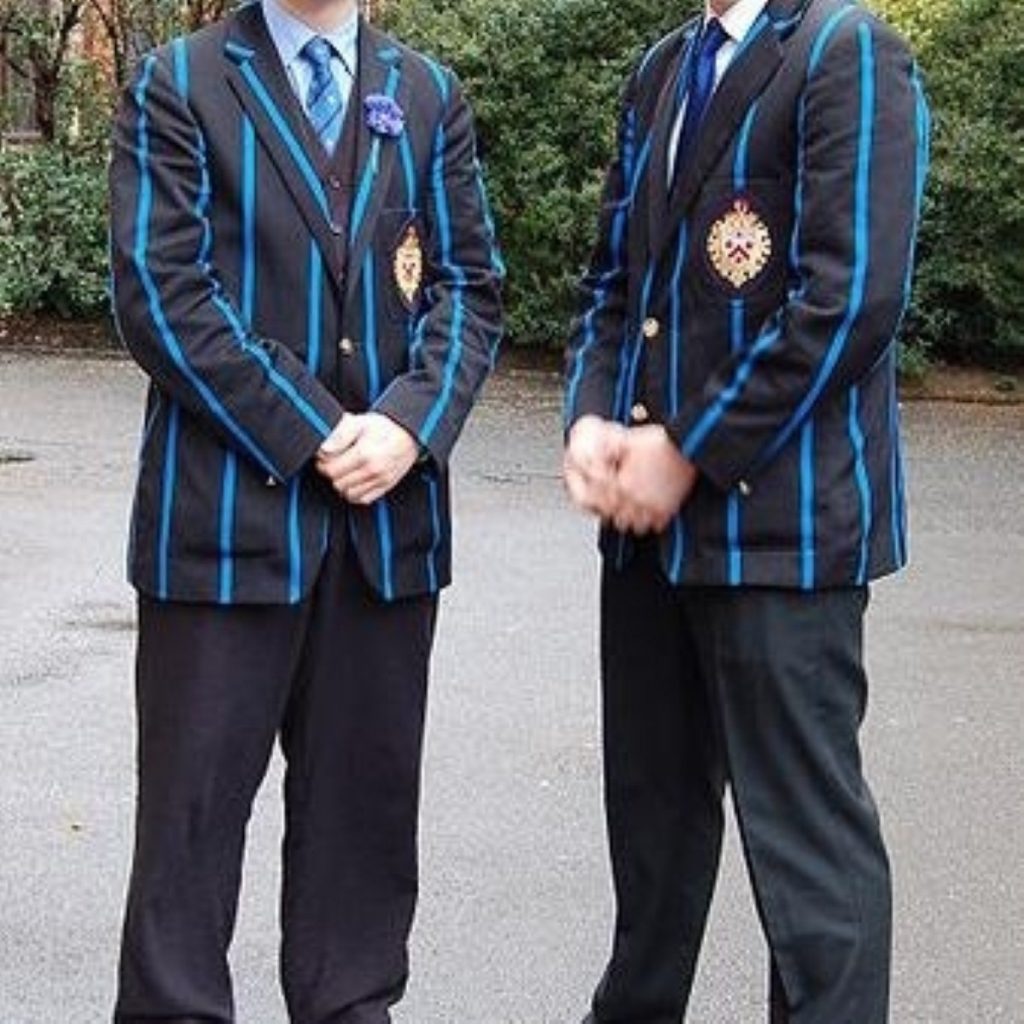Public schools could lose charitable status
By Liz Stephens
Independent schools could lose £100 million in tax breaks and be forced to raise their fees following a landmark ruling by the Charity Commission.
Two of the first five schools to be inspected by the commission have been told they fail to meet standards for retaining their charitable status.
The two schools, St Anselm’s in Derbyshire and Highfield Priory in Lancashire, have been given a year to take in more disadvantaged children from their communities, or risk losing their charity status altogether.


Most independent schools, including Eton, Harrow and Winchester, consider their charitable status to be vital for survival.
A spokeswoman for the Charity Commission said: “All charity trustees are being required to ensure they carry out their charity’s aims and for the public benefit.”
David Lyscom, head of the Independent Schools Council, an umbrella group representing many independent schools, said the recent ruling would inevitably lead to higher charges for parents.
He also condemned the commission for failing to specify how many bursaries a school needed to provide to meet the test.
“The schools are being found guilty without knowing what innocent looks like,” he said.
The commissions’ report on St Anselm’s school revealed it had provided only two bursaries, which cost one per cent of its total income.
It also provided £30,800 in assistance to nine children of armed forces personnel through a Ministry of Defence grant, and scholarships offering a ten per cent discount on fees to a further seven children.
The report concluded that the school was “not currently operating for the public benefit”.
Meanwhile Highfield Priory did not provide any bursaries at all, the commissioners found.
The school, however, insisted that it kept fees as low as it could – £5,975 a year – so that as wide a range of children as possible could benefit from its tuition.
Simon Northcott, headmaster of St Anselm’s, said: “[The commissioners] haven’t told us what they want us to achieve. We believe we can play ball with what they want but it obviously makes a difference whether they want us to go up to spending two per cent of our income or six or seven per cent.”
Today, the Charity Commission published a report setting out the key issues and offering information on how charitable organisations can meet its public-benefit test.
In all, 12 charities acted as “guinea pigs” for the pilot inspections and eight passed the test. Manchester Grammar School was the only school to volunteer for the pilot – it passed.
The other two charities to fail were fee-paying residential care homes.









